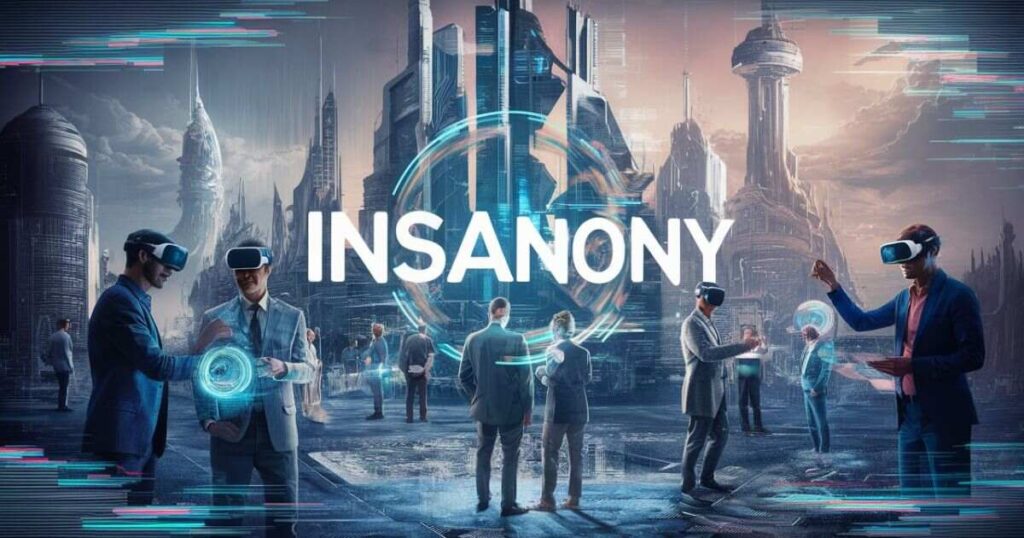In today’s digital landscape, where our lives are increasingly intertwined with online interactions, a new phenomenon has emerged that’s reshaping how we communicate and express ourselves. This concept, known as “insanony,” blends the seemingly contradictory ideas of insanity and anonymity. As we dive into this fascinating topic, we’ll explore its roots, implications, and the profound impact it’s having on individuals and society at large. Insanony: Understanding the Concept and Its Implications – Innovexpanse.
Introduction
The internet has given us unprecedented freedom to connect, share, and explore. But with this freedom comes a new set of challenges. Enter insanony – a term that’s gaining traction in the USA and beyond. It’s not just about being anonymous online; it’s about the sometimes wild, unpredictable, and even “insane” behavior that can emerge when people believe they’re shielded from real-world consequences.
As we delve deeper into insanony, we’ll uncover its psychological underpinnings, examine its effects on mental health and social discourse, and consider strategies for navigating this complex digital terrain. Whether you’re a casual internet user or a tech industry professional, understanding insanony is crucial in our increasingly connected world.
Defining Insanony
What is Insanony?
Insanony is more than just a catchy portmanteau. It represents a unique behavioral phenomenon that’s become increasingly prevalent in online spaces. At its core, insanony refers to the tendency for individuals to act in ways they normally wouldn’t when granted the cloak of anonymity on the internet.
Key characteristics of insanony include:
- Extreme or exaggerated opinions
- Disregard for social norms
- Heightened emotional responses
- Willingness to engage in risky or taboo discussions
Unlike traditional anonymity, which simply means concealing one’s identity, insanony encompasses the sometimes erratic or “insane” behavior that can result from this concealment. Insanony: Understanding the Concept and Its Implications – Innovexpanse.
The Appeal of Anonymity

Why does insanony hold such allure for so many internet users? The reasons are multifaceted:
- Freedom of expression: Without fear of judgment or repercussion, people feel emboldened to share thoughts they might otherwise keep private.
- Identity exploration: Anonymity allows users to try on different personas or express aspects of themselves they might suppress in daily life.
- Protection: For some, anonymity provides a shield against real-world consequences, whether personal or professional.
As one Reddit user put it, “Being anonymous online is like wearing an invisibility cloak. You can observe, interact, and experiment without leaving a trace.”
The Psychological Underpinnings of Insanony
The Online Disinhibition Effect
At the heart of insanony lies a well-documented psychological phenomenon known as the Online Disinhibition Effect. Coined by psychologist John Suler, this effect explains why people often act differently online than they do in face-to-face interactions.
The Online Disinhibition Effect comprises six key factors:
- Dissociative anonymity
- Invisibility
- Asynchronicity
- Solipsistic introjection
- Dissociative imagination
- Minimization of authority
These factors combine to create an environment where normal social constraints are loosened, paving the way for insanony to flourish.
Factors Contributing to Insanony
Several elements contribute to the prevalence of insanony in online spaces:
- Perceived invisibility: The lack of physical presence can make users feel invisible, even when their actions are visible to others.
- Asynchronous communication: The time lag in online interactions can reduce the immediacy of consequences, emboldening users to act more impulsively.
- Minimization of authority: Online spaces often lack clear authority figures, leading to a sense of freedom from traditional power structures.
- Dissociative imagination: Users may view their online activities as separate from their “real” lives, creating a mental divide between their online and offline selves.
The Impact of Insanony on Individuals
Emotional and Mental Health
Insanony can have profound effects on an individual’s emotional well-being and mental health. While it can offer some benefits, such as providing a safe space for self-expression or finding support, it also carries significant risks.
| Benefits | Risks |
|---|---|
| Self-expression | Cyberbullying |
| Finding support communities | Addiction to online validation |
| Exploring suppressed aspects of identity | Disconnection from real-world relationships |
| Reduced social anxiety | Increased anxiety about online reputation |
Case Study: Teenagers and Insanony
A 2022 study by the Pew Research Center found that 59% of U.S. teens have experienced cyberbullying. Many of these incidents were linked to anonymous or pseudonymous accounts, highlighting the dark side of insanony. However, the same study found that 43% of teens had used anonymous platforms to seek advice or support, illustrating the complex nature of this phenomenon. Insanony: Understanding the Concept and Its Implications – Innovexpanse.
Social Relationships
Insanony can significantly impact how we form and maintain relationships online:
- It can facilitate the creation of tight-knit communities around shared interests or experiences.
- It may lead to superficial connections that lack the depth of real-world relationships.
- The blurring of online and offline identities can create confusion and conflict in personal relationships.
The Impact of Insanony on Society
Online Communities
Insanony has played a crucial role in shaping online culture and communities:
- Niche Interest Groups: Anonymity allows people to explore and discuss topics they might feel uncomfortable addressing openly, leading to the formation of specialized communities.
- Misinformation Spread: The lack of accountability can contribute to the rapid spread of false information and conspiracy theories.
- Cultural Shifts: Meme culture, internet slang, and online trends often emerge from anonymous or pseudonymous spaces.
Political and Social Discourse
The influence of insanony extends to broader societal issues:
- Anonymous Activism: Platforms like 4chan have been the birthplace of movements like Anonymous, demonstrating the power of collective action under the banner of insanony.
- Echo Chambers: The ability to curate one’s online experience can lead to increased polarization and the reinforcement of existing beliefs.
- Democratic Processes: The spread of misinformation and the manipulation of public opinion through anonymous channels can impact electoral outcomes and policy decisions.
Case Studies and Examples
Social Media Platforms
Different social media platforms have taken varying approaches to insanony:
- Twitter: Despite efforts to curb abuse, anonymous accounts continue to play a significant role in shaping discourse on the platform.
- Facebook: The platform’s real-name policy stands in contrast to the insanony trend, though it has faced criticism for privacy concerns.
- Reddit: Subreddit communities often thrive on pseudonymity, allowing for both constructive discussions and instances of insanony.
Anonymous Apps
Several apps have embraced the concept of insanony, with mixed results:
- Yik Yak: This location-based anonymous messaging app saw rapid growth followed by a dramatic fall due to issues with cyberbullying and threats.
- Whisper: Focused on sharing secrets and confessions, Whisper has managed to maintain a user base while navigating the challenges of anonymous content.
Strategies to Mitigate Negative Effects of Insanony
As we grapple with the implications of insanony, several strategies have emerged to address its negative aspects:
- Encouraging Accountability:
- Implementing reputation systems that reward positive contributions
- Exploring blockchain-based identity solutions that balance anonymity with verification
- Promoting Positive Engagement:
- Developing robust community guidelines and moderation practices
- Using AI to identify and address harmful behavior early
- Educating Users:
- Incorporating digital literacy programs in schools and workplaces
- Launching public awareness campaigns about responsible online behavior
The Future of Insanony
As technology continues to evolve, so too will the landscape of insanony:
- AI and Machine Learning: Advanced algorithms may help in moderating content and identifying patterns of harmful behavior.
- Virtual and Augmented Reality: These technologies could introduce new dimensions to online identity and anonymity.
- Policy and Regulation: Governments and tech companies will need to collaborate on frameworks that balance freedom of expression with user protection.
Conclusion
Insanony represents a complex and multifaceted aspect of our digital lives. As we’ve explored, it offers both opportunities for freedom and self-expression, as well as challenges to individual well-being and societal cohesion. By understanding the concept of insanony and its implications, we can work towards creating online spaces that harness the benefits of anonymity while mitigating its potential harms.
As we move forward in this digital age, we must approach insanely with a balanced perspective. We must strive to preserve the freedoms that make the internet a powerful tool for connection and expression while fostering a culture of responsibility and empathy in our online interactions.






